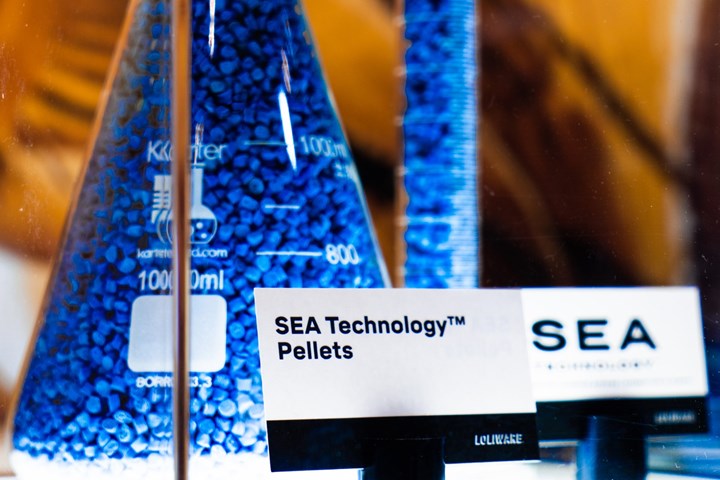Montachem Will Add Loliware Biomaterial to Product Offerings
Expected agreement will bring Loliware's seaweed-based material into Montachem's European portfolio.
Montachem International announced it will make a move into biomaterial with an agreement with Loliware, a California-based company that makes resins from seaweed that can be processed with plastic manufacturing equipment.

Loliware’s SEA Technology pellets are produced from seaweed and other natural materials.
Photo Credit: Loliware
The biomaterials will be a first for Montachem: the company currently offers Polyethylene, Polypropylene, Polystyrene, PVC, and PET. The distribution agreement is expected to be finalized by the end of 2023.
Loliware’s SEA TechnologyResins are made completely from seaweed and other natural materials. They have been engineered to be processed using conventional techniques such as injection molding, extrusion, and thermoforming, for an easy transition from petroleum based commodity resins. According to Victoria Piunova, chief technology officer at Loliware, only subtle changes are needed, such as melt temperature adjustment and—in some applications—post-processing.
Loliware’s resins are already on the market in North America; its extrusion formula is used to make drinking straws, and its injection molding formula is used to make utensils. The material is home-compostable. Testing indicates products manufactured from the resin will break down in around 51 days via aerobic degradation.
Related Content
-
BASF Highlighting How They 'Make, Use and Recycle Future Solutions'
NPE2024: BASF is using its proprietary computer-aided engineering tool Ultrasim when designing for sustainability in a broad range of industries.
-
NPE2024 Materials: Spotlight on Sustainability with Performance
Across the show, sustainability ruled in new materials technology, from polyolefins and engineering resins to biobased materials.
-
How to Optimize Your Molds and Hot Runners for Processing Bioresins
Demand for bioresins is growing in molded goods, particularly as a sustainability play to replace fossil-fuel based materials, but these materials are not a drop-in replacement for traditional materials. Molds and hot runners need to be optimized for these materials.





